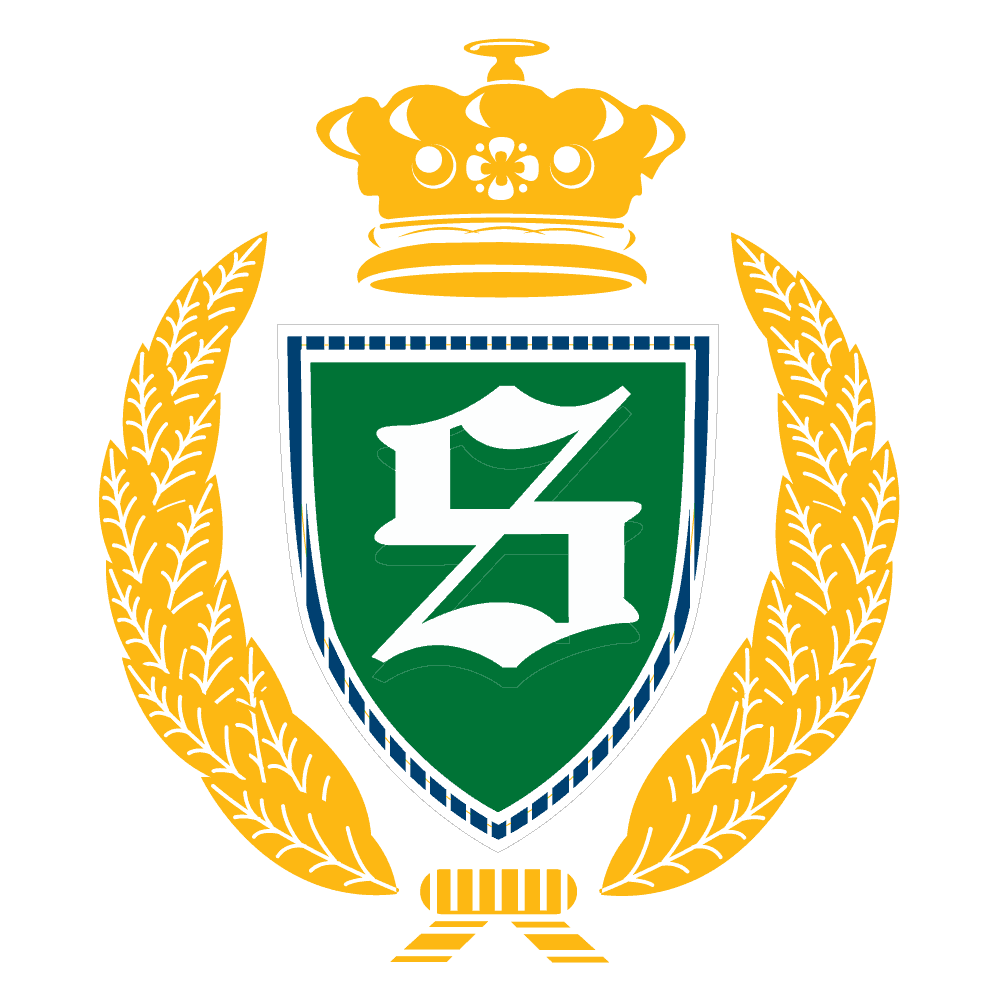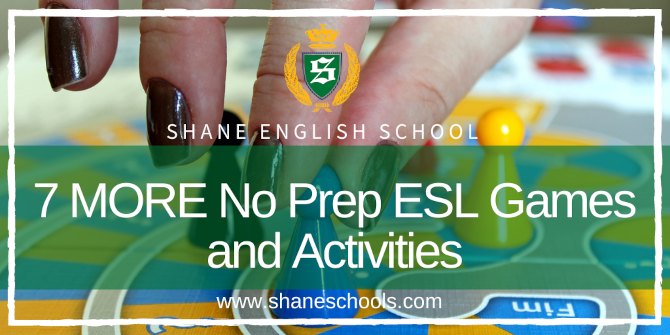Any ESL teacher knows the merit of having games and activities in an ESL classroom. Not only can these games and activities be used as a time filler or extra practice, but they can also be used for warm-up activities, breaking the ice, or adding a little fun to the class.
In this article, we will focus on those types of games and activities in which no prep is required; thus, making them easy to implement at the top of the hat.
Read on to learn more!
1. Word Chain
Suitable for: kindergarten to adolescents
Use: icebreaker/warmer/time-filler/vocab practice
Students stand in a circle or just stand up where they are (depending on the layout of your classroom). You can also play this game with a ball or without one.
You can start the game for the first time by giving a student any letter in the alphabet, e.g. “i”. Pass the ball to a student, then they have to say a word that starts with that letter, e.g. “ice”. The next student then gives a word that starts with the last letter of “ice”, e.g. “egg”. And so the game continues.
You can also play different variations with the game, e.g. a student needs to give words that are longer than three letters, it should be related to a theme, all words should be verbs, etc.
2. Word Association
Suitable for: elementary students to adults
Use: icebreaker/warmer/time-filler/vocab exercise
The game is similar to ‘word chain’, but the purpose is to have a theme, and the students need to say what is the first word they associate with that theme.
All you need is a soft ball or die. Students stand in a circle, and the ball is passed from student to student, with each student saying the first word they can think of associated with the theme.
If you have a big class, divide the class up into two or three smaller groups and play.
3. Baamboozle
Suitable for: elementary students
Use: icebreaker/warmer/time-filler
If you want to get your students excited or regain their attention, play one of Baamboozle’s 750,000 free mini-games. Focused more on elementary students, the immense variation of games makes sure that there are definitely suitable games for your students.
4. Line Up
Suitable for: elementary students to adults
Use: icebreaker/conversation practice
This no prep ESL game is especially great if it is your first time teaching a class or if the whole class is new and students should get to know each other.
You can come up with three questions, such as “What’s your name?”, “Where are you from?”, and “What is your favourite book?” If needed, you can write these on the board. Students stand in two lines, facing each other. Once you say, “Go”, the students on one side of the line start asking the person opposite them the questions. Once the first pair of students is done asking each other, they say, “Switch”, and one line of students move one space down. And so the activity continues.
Rather than just an icebreaker or getting-to-know-you type of activity, use this for conversation practice with students asking and answering questions or practicing dialogue related to the topic, for example, ordering food in a restaurant, where one line of students are the ‘waiter’ and the other the ‘customers’.
Not working for you? Check out these activities too.
5. A-Z Reflection
Suitable for: elementary students to adults
Use: word practice
Students write down all the letters of the alphabet on a piece of paper. You can choose a topic or theme, and all words need to match the letters. Depending on their level, they can also write down more than just one word. For example, a theme could be what they did over the long weekend (they don’t have to write what really happened, but can use their imaginations, too). Each word or phrase they write next to the letter of the alphabet needs to start with that letter, e.g. S – saw a dragon boat competition.
This activity could be shortened if there are time limits and can also serve as a good way to see what words your students know prior to teaching a topic or theme.
6. Words in a Word
Suitable for: elementary students to adults
Use: icebreaker/warmer/time-filler
Depending on your ability to think on your feet, this ESL activity might require a wee bit of prep (or just looking online or in a dictionary for a long-ish word).
This no prep Word in a Word activity presents students with one word to find all the words that they can within this word or using only the letters in the word in a certain time limit. An example of this one word is “landscapes”.
As the teacher, you can impose several rules depending on the level of your students, such that all words, for example, should be four letters or more. Students can work individually, in pairs, or in small groups.
7. Charades & Pictionary
Suitable for: kindergarten to adults
Use: review vocab
Since these games are somewhat similar, they are grouped together.
Depending on your class size, divide the students into two groups (or four). Each player gets a word, and they can easily be chosen from the vocab list in the reading book or from a previous unit.
In Charades, the player needs to act out the word without saying anything. While this is happening, the students in the group guess the answer. For each correct answer, the group gets one point.
In Pictionary, instead of acting out the word, the student needs to draw a picture of it. No numbers, letter, or symbols can be used. Again, the team needs to guess the answer, and a point is awarded for each correct guess.
Students can easily play Charades or Pictionary play until all the words on the list have been reviewed.
Final Thoughts
As stated above, ESL games and activities that require no preparation are always handy, whether to act as an ice breaker or warmer activity, fill up time in a class, or to practice vocabulary or conversation for example. These are only a sample of no prep games that you can utilise in your classroom, and as you develop as a teacher, you will later on have hundreds f these types of ESL games to make use of as the opportunity or need presents itself.
Want more teaching tips? Visit our Teaching Tips blog.
About the Author
Denine Walters is currently a freelance writer, editor/proofreader and ESL teacher. Previously, she taught online English lessons to students from all around the world and, before that, she lived and taught English to young learners in Taiwan. In her free time, she likes to read, do scrapbooking and grammar quizzes, and travel.

We're hiring!
With schools around the world, Shane English School always has exciting new opportunities to offer.


